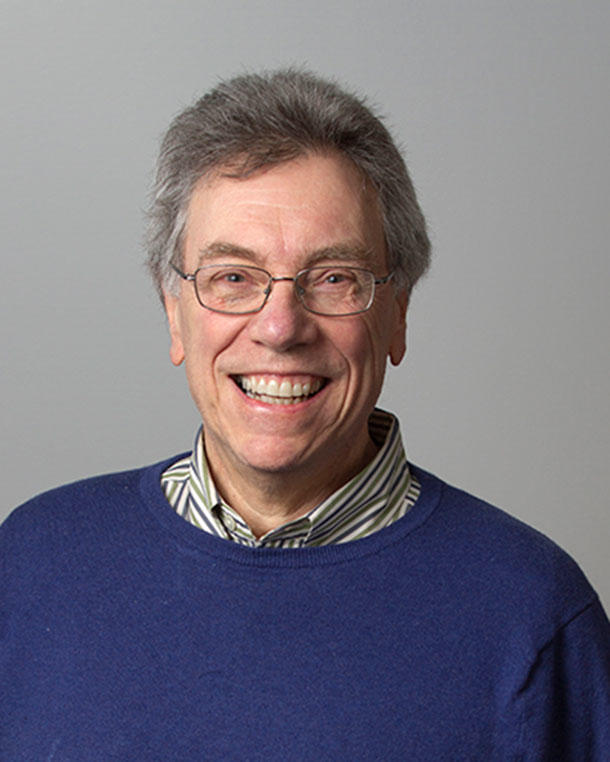Neil Caporaso Retires from DCEG
, by Jennifer K. Loukissas, M.P.P.
Neil E. Caporaso, M.D., an internationally recognized expert in genetic and environmental factors influencing lung cancer, chronic lymphocytic leukemia (CLL), and related familial hematologic disorders, retired from the National Cancer Institute in October 2020. Dr. Caporaso served as chief of the Genetic Epidemiology Branch from 2011 to 2016 and was most recently a senior investigator in the Occupational and Environmental Epidemiology Branch.
Dr. Caporaso’s earliest work focused on the then controversial idea that genes could influence cancers with known strong environmental determinants. The conventional thinking at the time was that genetic influence on cancer etiology was rare, based on major susceptibility genes, occurring in the context of high-risk families. Dr. Caporaso advocated for and performed studies using pharmacogenetic tools and biomarkers to demonstrate the importance of genetic variation in risk for lung and bladder cancer, malignancies with strong environmental influences. This and other work on genes involved in metabolism of carcinogens and other substances provided early prototypes for future large-scale biomarker studies of cancer.
Based on these principles, Dr. Caporaso and his colleague, Maria Teresa Landi, M.D., Ph.D., launched their landmark case-control study of lung cancer in the Lombardy region of Italy, a geographic area with high smoking rates, a concentration of manufacturing industry, and a sophisticated medical system, that facilitated the collection and analysis of genetic, environmental, clinical, and behavioral data. The EAGLE (Environment and Genetics in Lung Cancer Etiology) Study was large, biologically intensive, integrative, and population based. With his colleagues, Dr. Caporaso published a broad series of descriptive, molecular, clinical, and genetic/genomic and smoking investigations, with over 100 publications to date. EAGLE provides a rich resource benefiting the wider scientific community: data been downloaded by hundreds of investigators and biospecimens have contributed to international consortia- and tissue-based studies, which have helped to identify many common genetic factors. The design and approach novel to EAGLE form the basis of new investigations, such as the new Connect for Cancer Prevention Cohort Study.
A novel feature of EAGLE was the incorporation of behavioral data such as nicotine dependency, which made possible a series of studies involving time to first cigarette (TTFC) in which Dr. Caporaso identified short TTFC as an independent risk factor for lung cancer and chronic obstructive pulmonary disease. He validated in data from the National Lung Screening Trial, resulting in its inclusion in a risk model for lung cancer. Recently, Dr. Caporaso described the unique characteristics of light and intermittent smokers in a comprehensive analysis of data pooled from three nationally representative surveys.
Dr. Caporaso utilized the Prostate, Lung, Colorectal, and Ovarian Cancer Screening Trial Cohort Study (PLCO) and other DCEG cohorts to evaluate and validate new technologies for biomarker studies, laying the groundwork for the study of cytokines, metabolomics and the microbiome, which have accelerated the science broadly on these important aspects of human health.
A Clinician and Epidemiologist
In addition to the study of lung cancer, Dr. Caporaso carried out an impressive portfolio of research on CLL kindreds and a broad range of other lymphoproliferative malignancies including Hodgkin lymphoma (HL), non-Hodgkin lymphoma (NHL), and Waldenström macroglobulinemia (WM). Early studies of the CLL kindreds led to the identification of B-cell clones in apparently unaffected family members. With his longtime collaborator Dr. Gerald Marti, Dr. Caporaso created an international consortium that defined and named the CLL precursor condition, monoclonal B-cell lymphocytosis (MBL). His work showed that it was present in virtually all of the cases years before the diagnosis in both families and population settings. Dr. Caporaso was part of a longitudinal follow-up of MBL, studying collections of CLL kindreds to form the basis of a consortium that has been key to recent genome-wide association studies (GWAS) of CLL, MBL follow-up studies, chromosome mosaic biomarker studies, and planned studies of somatic mutations. Recently, the first GWAS of WM was published while whole exome sequencing has identified key variants for CLL, HL and other lymphoproliferative disease families.
While most of his research focused on observations from large cohorts or study populations, Dr. Caporaso did not overlook the importance of individual participants. A unique single cell integrative study on a CLL patient seen by Dr. Caporaso an annual basis for 29 years identified chromosomal alterations in early cell clones, elimination of clonal populations following therapy, and subsequent appearance new alterations that present in a major clonal population dominant at the patient’s death. The study demonstrated that CLL can evolve gradually during indolent phases, and undergo rapid changes following therapy.
Recently, Dr. Caporaso has been engaged in novel research investigating the possible role of sleep, circadian rhythms, and chronotype in relation to cancer. He conducted early studies investigating the role of biomarkers in sleep and circadian disruption, and has postulated that insulin resistance, which plays an important role in obesity, may be a common link in circadian and sleep disorders.
